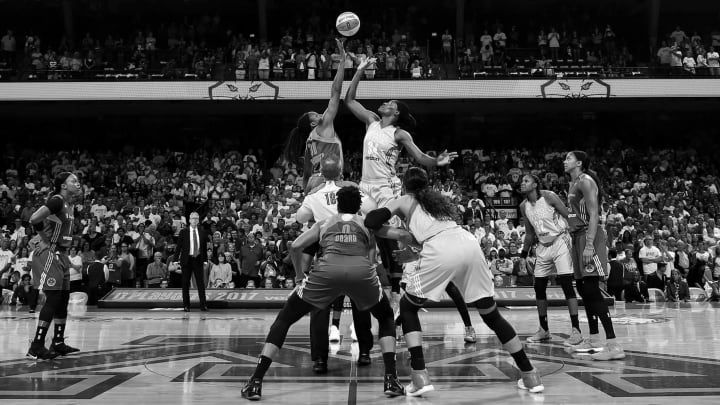
Our Lives Depend on It
On October 24, a white man walked into a Kroger in Jeffersontown, Kentucky, and shot and killed a black man and woman while they were shopping. Earlier the same day, the gunman had tried to enter a black church, but by the grace of God could not get the doors open. Earlier this year, another gunman murdered 17 students and staff members at Marjory Stoneman Douglas High School in Parkland, Florida. On October 27, a man shot and killed 11 worshippers at a Pittsburgh synagogue as some were celebrating the birth of new life, a baby boy.
Right now, our collective national identity is one of pain and despair, of confusion and anger. We are fractured, we are hurting and too many are finding themselves as mourners. But America’s true identity is one of greatness. We may have deep scars, but from times of darkness we have emerged as a nation with the courage to protect our neighbor from harm and the willingness to insist on our shared values of hope, of inclusion, of community. We have always stood up for each other. We have always been able to reclaim our identity.
On November 6, we can return to that place. We can raise our voice and remind our officials and each other that we are more than the hate we have seen. With our vote, we can say that we believe in and are committed to the happiness, the health and the lives of all Americans. We can tell the world that we are a country worthy of our reputation as the world’s greatest nation.
This is what is at stake with your vote.
If you think your vote doesn’t matter, just look at how hard certain officials are trying to suppress it. In Georgia, one lawsuit alleges that 53,000 newly registered voters have been placed in “pending” status because of a law that disproportionately affects minority voters, while another claims that 340,000 voter registrations were incorrectly canceled by Brian Kemp, the secretary of state who is currently running for governor. In Michigan, North Carolina and Texas legislators have drawn voting boundaries to cram as many like-minded — often minority — voters into one district. Sometimes the effect is such that the voters in that particular district receive only one representative, even though by the numbers they should have more. At other times the gerrymandering causes the dispersal of minority voters amongst strangely drawn districts, meaning their voices become so diluted they effectively have no representation. In North Dakota, a state with a hotly contested Senate race, a law that went into effect in 2016 may block 70,000 residents from voting because of a strict I.D. requirement. Many of them are Native Americans.
NFL season #OpeningDay is upon us and #ElectionDay is officially one month away! Have you registered to vote yet? #GetOutAndVote #YourVoiceMatters #LetMyPeopleVote pic.twitter.com/eXai8JP4uv
— PlayersCoalition (@playercoalition) September 6, 2018
The magnitude of our decisions this November is huge. The senators that we elect will pick the justices who preside over federal courts for decades, giving them an enormous influence over how our Constitution and Bill of Rights will be interpreted. The representatives we put into Congress will decide what the future of health care looks like for us and for our children, what taxes are paid and by whom, and whether the natural environment of our planet is protected. And these future members of the United States government will decide whether to preach messages of hope and unity, or messages of hate and division.
The races at the state and local level, and the issues on the ballots, are no less important. There are races for governor in Florida, Georgia and Pennsylvania, where the candidates have sharply divergent views about whether or not to spend the money necessary to fund devastated public schools, whether or not to ensure our laws protect all citizens instead of a select few, and whether or not to roll back mass incarceration rather than continue with tough-on-crime policies.
There are races for district attorney in Boston, Birmingham, Dallas and San Antonio, where the winner will be able to end a bail system that holds people who have been accused — but not convicted — of a crime before trial simply because they are too poor to pay for their release. In Florida voters can give the right to vote back to 1.4 million people who have been convicted of a crime and have paid their debt to society. In Ohio, there is a measure on the ballot that would keep addicts out of jail and divert the money that would have been spent on their incarceration to their treatment.
The list continues, but each choice presents us with the chance to make a moral statement about what we want our country to be and what values we cherish.
We cannot afford to sit this one out, and anyone who tells you otherwise has an interest in keeping you at home. In the last midterm election, just 37% of eligible voters cast ballots. That means that 63% of those who could have voted chose to let someone else decide their fate. We cannot relegate the hopes and dreams of this country to such a small portion of society.
On November 6, we can demand better. For each one of us, for our families, for our neighbors. Vote. Our lives depend on it.
About the Authors
Kelvin Beachum, Matt Forte, Chris Long and Josh Norman are active members in the Players Coalition, an independent 501 (c)(3) and 501 (c)(4) organization led by professional athletes to impact social and racial inequality. Visit www.players-coalition.org for more information, and follow us on Twitter at @playercoalition.



